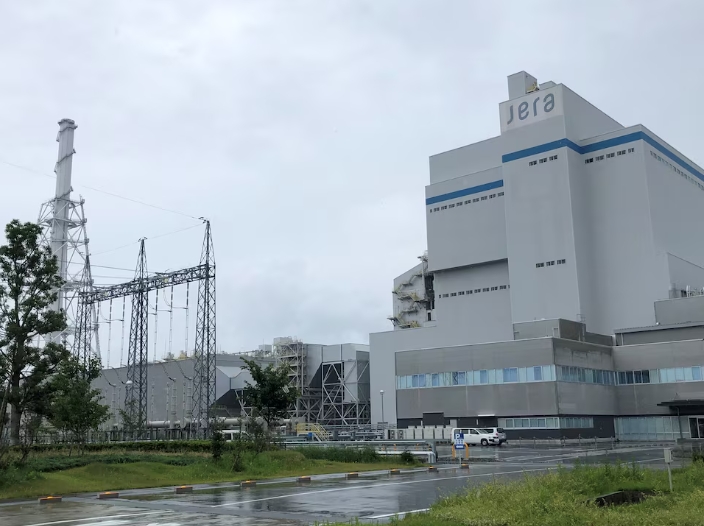
the gas at a major commercial plant.
The trial, to be conducted with heavy machinery maker IHI (7013.T), opens new tab, will take place from March 26 to June 19 and is part of JERA's decarbonisation efforts, it said.
The project, which started in 2021 with small volumes of ammonia at another unit at Hekinan, is aimed at cutting carbon dioxide (CO2) emissions by replacing some coal with cleaner fuels.
Ammonia is mainly made from hydrogen produced from natural gas and nitrogen from the air. It does not emit CO2 when burned, but its production releases emissions if it is made with fossil fuels.
Japan, the world's fifth-biggest CO2 emitter, aims to use ammonia and hydrogen as fuels for thermal power generation to help achieve its 2050 goal of becoming carbon neutral, though environmentalists have criticized the move as a way to extend the life of dirty coal-fired power generation.
"By conducting this demonstration and establishing combustion technology, we can take the first step toward promoting zero-emission thermal power plants that do not emit CO2," Katsuya Tanigawa, head of the Hekinan power station, told reporters.
JERA wants to gradually increase the ammonia component with a view to eventually reaching 100% in its power plants and has high hopes of pioneering a new way of reducing CO2 emissions at coal-fired power plants that could be adopted in other countries.
"We want to contribute to the decarbonisation of the entire world through the use of our technology in countries and regions where thermal power plants are needed," he said.
JERA, a joint venture between Tokyo Electric Power (9501.T), opens new tab and Chubu Electric Power (9502.T), opens new tab, plans to use 40,000 metric tons of ammonia for the demonstration, but did not disclose where it will buy ammonia from.
JERA aims to start ammonia co-firing on a commercial basis at Hekinan No.4 unit as early as 2027 and a trial of replacing 50% of coal with ammonia at No.5 unit in around 2028.
While success in adapting power plants to using ammonia could be a breakthrough, even if not enough to satisfy anti-coal campaigners, significant challenges remain - costs, adequate supply of ammonia, technology to control nitrogen oxide (NOx) emissions and safety of handling high volume of toxic ammonia.